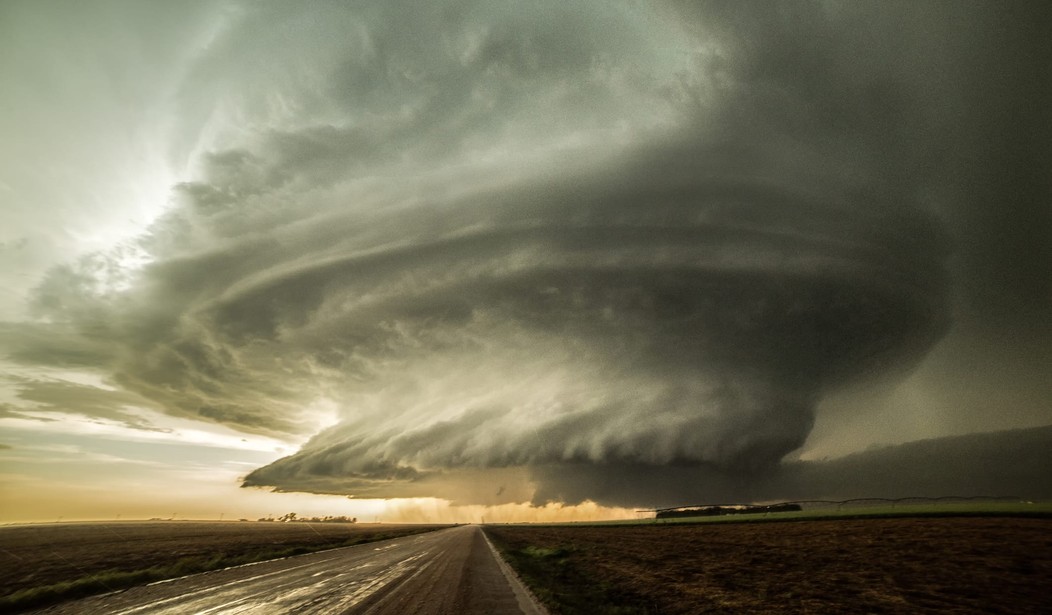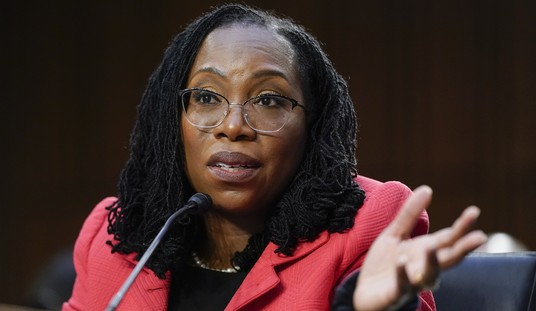Since we first covered the Climategate Files here at PJ Media in 2009, the controversy has continued, but with some interesting changes. For example, the term “global warming” has pretty universally been replaced with the term “climate change.” The language has changed, and the facts have changed. There are lots of new facts, and a whole lot of them dispute the climate dogma.
Of course, the more the climate dogma is disputed, the more the climate change cultists resist. On the other hand, we’ve seen a lot more people coming out as thinking maybe, just maybe, there are some points of responsible dispute in the argument about climate change.
On the other hand, there are a lot of dogmatists who simply can’t be productively argued with. (On both sides, actually.) So how can we tell when we’re trying to argue with someone who is worth the effort, or if we should just move on to some other topic, like baseball?
So, here are some suggestions of things to watch for in order to know when you should be talking about the Mets.
1. Do they use “denier” as an argument?
This is a key giveaway, always. In science, the science is never settled. There is always new information, and everything can be questioned. There are examples every day of “settled science” that turns out to be wrong, and yes this includes “climate science.” So, if someone says that it’s “settled science” and accuses you of being a “science denier,” ask them what they think of the Rockies’ chances this year.
2. Do they uncritically accept the “97 percent of scientists agree” argument?
Actually, this is a variant of the “denier” argument, in a somewhat more civilized form. There was indeed a peer-reviewed paper published that claimed they’d done a survey and 97 percent of scientists agreed that global warming was a major problem. There were two basic issues there:
- That wasn’t the actual question they asked.
- The methodology — how to say this diplomatically? — sucked.
For the details, there are several good papers to read, but it comes down to two things: the survey was done with little rigor, and the way they asked the question was so broad that it included in the 97 percent a whole lot of people who are otherwise reviled as “deniers” who must be in the employ of the oil companies. (One example is Wei-Hock “Willie” Soon at the Harvard astrophysics laboratory.)
If you ask, “has there been warming in historical times, and do humans contribute to it?” the answer is “almost certainly yes.” They never asked the follow-on questions: “how much do humans contribute?” and “what are the consequences?” and “is reducing the human contribution the best use of limited resources?”
If they don’t know this or insist the 97 percent is accurate and proves the consensus, then it’s time to ask about the Yankees’ pitching.
3. Do they insist that increasing severe weather has been a consequence of climate change?
Climate models often predict that warming will cause an increase in severe weather, and in fact, there have been a number of people arguing that hurricanes from Katrina to Harvey were caused by global warmings.
This notion has a number of problems, but there are two really major ones:
- The number of hurricanes — both overall and the number making landfall in the U.S. — has actually been historically low, even with several last year.
- While the dollar value of hurricane damage has been higher, it’s not because of more severe hurricanes — it’s because people are building more buildings near the coasts, and the value of those buildings is greater.
Even though the IPCC agrees that there’s no evidence that climate change has caused greater severe weather, though, Roger Pielke, Jr. was expelled from the tribe of the bien-pensant, and even investigated by Congress, for saying it.
4. Do they insist that climate skeptics say there’s been no warming?
A lot of these people will have already been culled from the herd by question 1 — they’re much more likely to denounce people as “deniers” and then claim skeptics say there’s been no warming. But this is a useful question for the dogmatists on the other side who insist that humans have no effect, or that CO2 has no effect, and that water and/or methane are more important greenhouse gases anyway.
There are a number of points here that can be answered:
- The question of whether there has been warming is pretty well answered by the fact that 400 years ago, the Thames River froze over every year, and froze hard enough that there was an annual Thames River festival on the ice. The causes and reasons for that are less clear. Beyond that, the thermometer was invented about 400 years ago, and there is a record of temperature measurements since then.
- There is a tricky point here: water and methane really are much stronger greenhouse gases than CO2, and certainly dominate the effects of CO2 at 200 parts per million or 400. But that is basically unimportant because the question is not the absolute greenhouse effect of each of these gases, but the change. If CO2 is a greenhouse gas — and it is — then increasing the concentration would have the effect of retaining more heat. But that’s not the whole story. Forgive me the teleology here, but systems try to come to equilibrium, and in a system that’s been up and running as long as Earth’s climate has when something pushes it one direction, you can generally depend on there being something to push in the opposite direction. If CO2 increases, the amount of heat retained will also increase — but plants will grow faster, which will take CO2 out and turn it into a rutabaga. More water will evaporate and become water vapor — but it will also become clouds, which reflect sunlight and tend to reduce the temperature. There are many other potential countering effects, but overall, the point is that there is a complicated system that determines the temperature of which CO2 is only a part. Computer models turn this into a number called “climate sensitivity,” which is basically how much total warming can be expected from a unit increase in CO2 concentration. The accepted models give numbers as high as 4° per century for the increases we’ve seen, but those models uniformly don’t seem to be predictive: the computed temperature insignificantly higher than observed temperatures. More recent estimates (eg, Lewis and Curry) make the estimate much lower.
5. Are they willing to question the “accepted” values for actual warming?
The apparent mismatch between the modeled values and the measured values for temperature lead to the next question. The number of interest is the global average surface temperature, or GAST. One argument that comes up sometimes is that this is not even a meaningful number, but that’s wrong and kind of silly. The Earth has a surface, every point on it has a temperature, and the average of that temperature can be computed. Of course, we don’t have thermometers on every point on the Earth’s surface and we aren’t recording the temperature for every thermometer we do have. But that just turns GAST from a measurable value into a statistical quantity, with an error interval.
Error interval and all, though, the actual raw data temperature has not been growing at the rate the models expect. For some time now, the dominant climate science groups have been adding corrections to the raw data that brings the computed GAST more in line with the predictions of high CO2 sensitivity models.
This is not inherently wrong: when you compute a statistical value, you are always making assumptions based on your statistical model. (Don’t get confused, though: that statistical model is distinct from the climate models.) But on the other hand, as my grandfather said, “if the bird book and the bird disagree, believe the bird.” Right now, the corrections to the raw data largely account for the whole warming observed in the last 20 years, and when your corrections to the data make your model go from “outside the confidence interval” to “square in the middle of the confidence interval,” it’s time to question the corrections.
The corrections could be right. But if you’re talking about the GAST and the person you’re talking to insists the corrected GAST is Gospel — well, you’re no longer talking science.










Join the conversation as a VIP Member